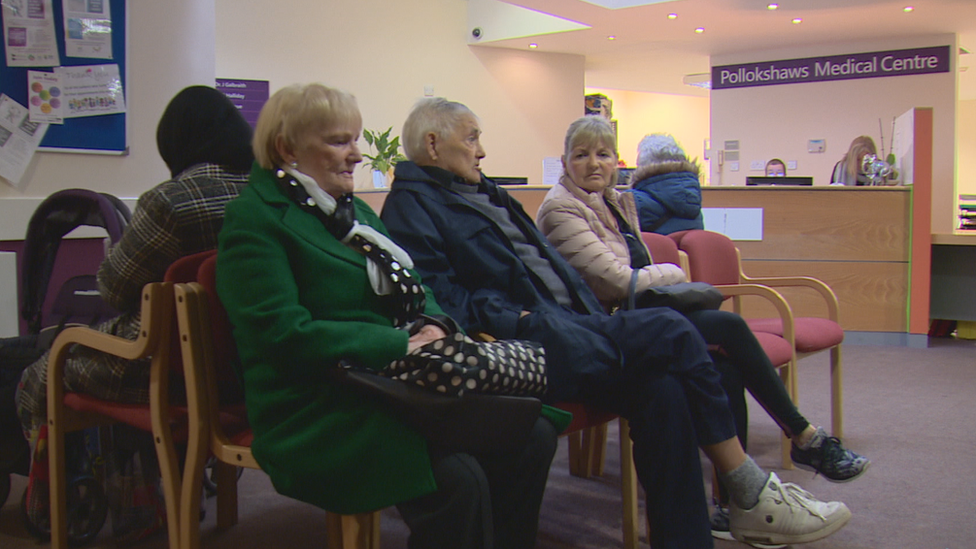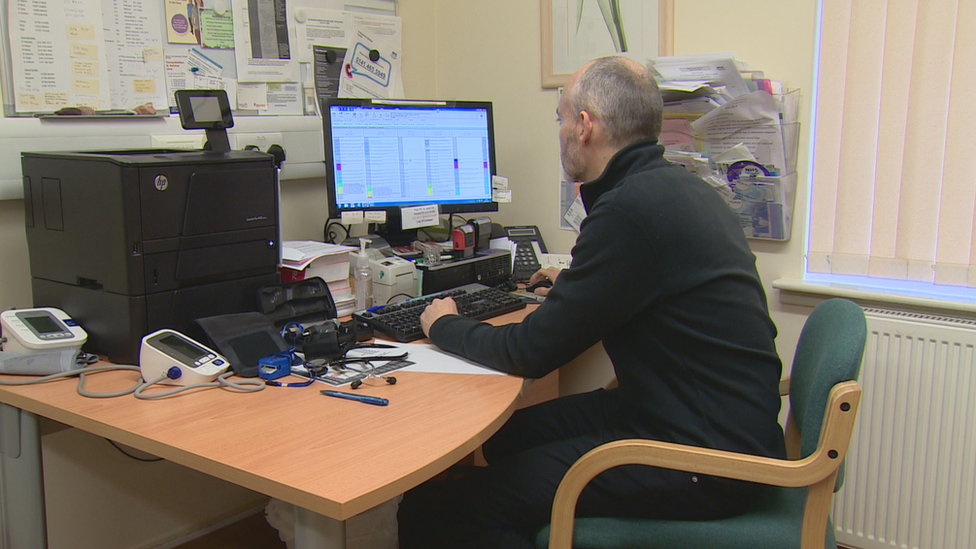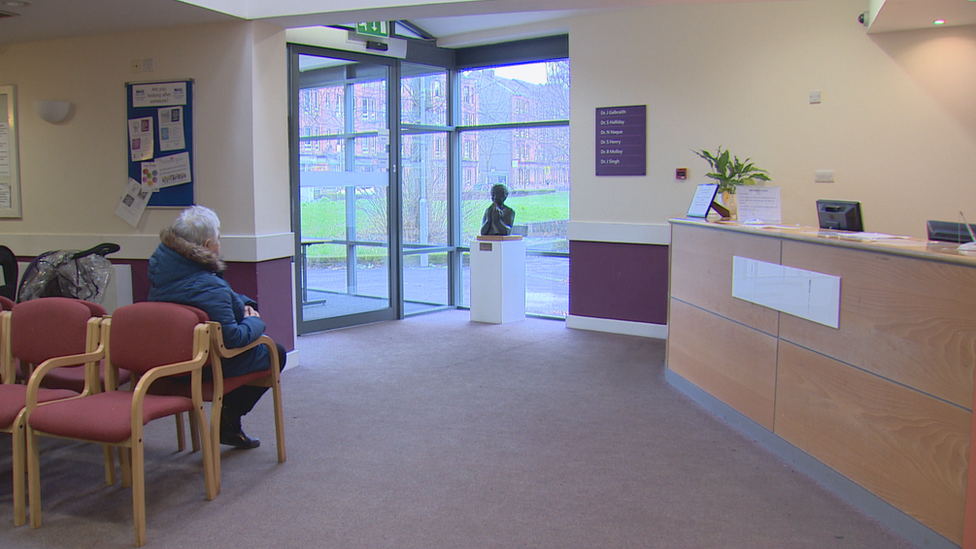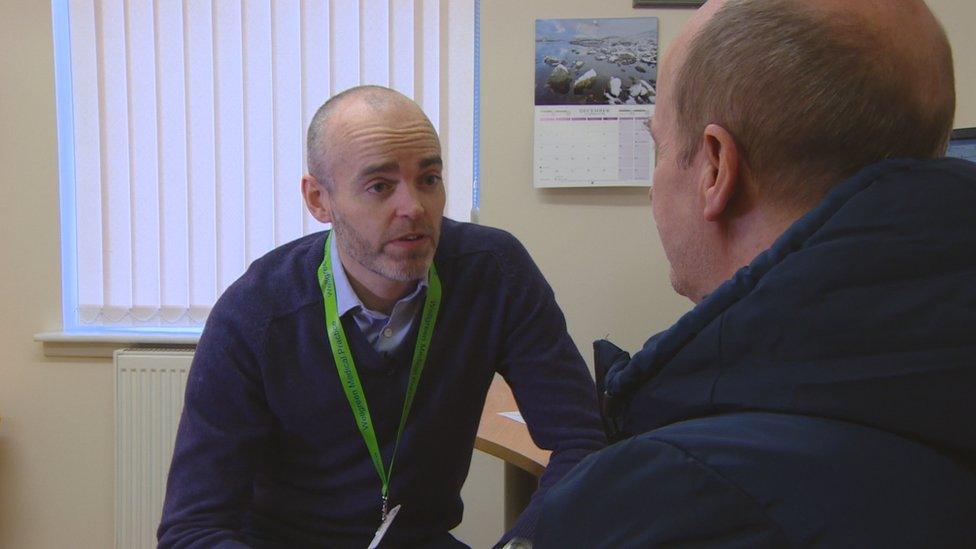Repeated GP no-shows 'more likely to die early', says study
- Published
Dr Ross McQueenie says people with long-term mental health problems who miss medical appointments are more likely to die early.
People who repeatedly fail to attend GP appointments are more likely to die early, according to a new study.
Lead researcher Dr Ross McQueenie, of Glasgow University, said patients with a number of long-term health conditions were more likely to miss appointments.
And patients with mental-health conditions had an even higher risk of not showing up to see the doctor.
These patients were eight times more likely to die prematurely than those who missed no GP appointments.
Dr McQueenie said that in mental health patients death was often due to factors such as suicide.
The researchers pointed out that the study was "observational" and there was unlikely to be a "causal" link between missed appointments and early death.
The conditions that caused people to miss appointments, such as dementia or problem alcohol and drug use, were also associated with an increased risk of premature death, it said.

The study, which involved researchers from Glasgow University and the University of Aberdeen as well as the University of Lancaster, looked at more than 130 GP practices across Scotland over a three-year period to September 2016.
It examined records of 824,374 patients across 11 health boards.
The records were then linked to data from death records.
The research, published in the medical journal BMC Medicine, is the first in the world to examine the type of people who miss appointments and the outcomes for them.
Those with long-term physical conditions were three times more likely to die prematurely than those who missed no appointments.
But for patients with long-term mental health problems who missed appointments the findings were worse.

Dr David Blane said it was the first research he had seen that had studied the issue
Dr McQueenie told BBC Scotland: "Those people are about eight times as likely to experience premature mortality as someone who does not miss appointments and has no long-term mental health conditions.
"The people who had long-term mental health conditions had a significantly younger age at death and their deaths tended to be from things like suicide.
"We think that is in some way fed into by the fact that they missed appointments, by the fact that they are not engaging with health care services.
"That breakdown in their interaction with the health service leads to these negative outcomes."

Many GP surgeries strike patients off for repeated no-shows and there is a debate about charging patients for missed appointments.
But GPs like David Blane says sanctions are not the answer.
Dr Blane, from Pollokshaws Medical centre in Glasgow, said: "We now know that this is a group of patients who have complex health needs and are also more likely to die prematurely.
"If anything this is a marker of people who need more input rather than being punished with fines."
Dr McQueenie, the study's lead author, also said he was against sanctions, saying patients from deprived areas and the vulnerable were likely to suffer from this.
He called for more appointments on the same day they are asked for and better access to mental health services without having to go through a GP.
- Published5 December 2017
